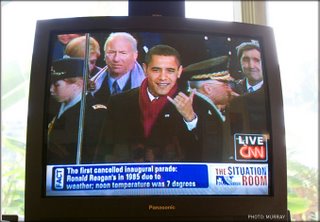I know I've been rather neglectful of the blog and the site in these last couple of months. But personal and professional changes have kept me extremely busy on a number of projects, hence the silence. To be sure there's been no shortage of issues to cover. For one, hurricane season wreaked some major turmoil in the Gulf states,
conditions which remain, though the mainstream media may have taken their eye off of those things for the time being. Environmental news as of late has ranged from the
extremely terrifying to the
extremely tragic, but the nation's focus is on the political & the economic. There's probably never been a time where I've felt more compelled to work on the site . . . and not had the time or energy to do so.
And thus begins another round of working on the site. While I have a bit of "time off" before my next project I'm going to make my best effort to catch up on some web-site maintenance and development. I'm hoping that there'll be some major progress in the next coming weeks, even though I'm wary of setting my ambitions too high given the amount of things on my plate these days. . .
Still, the painful disregard for the state of our natural systems is alarming, and it makes me want to roll up my sleeves even further. Given the state of the political & economic discussion what's clear to me is that nobody is looking at our problems in a very holistic fashion. The interventions that one group or another proposes are all efforts to maintain a system, the very design of which goes against the principles of nature. Every time I hear one of the candidates mention "clean coal" or the "need" to ween ourselves off of foreign oil by increasing offshore drilling, my suspicions are reinforced. To be sure, the problems in our economic world are global and frighteningly disruptive; but if our ability to regulate systems of our own design are so limited, how much more vulnerable are we to changes in systems well beyond our control?



